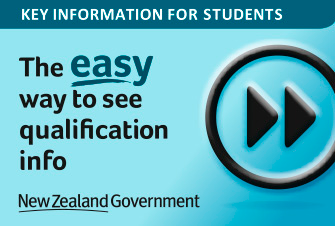Programme overview
This four-year programme, comprising a blend of theoretical and practical work, ensures that you’re career-ready upon graduation. You’ll pursue one of the 10 specialisations available at New Zealand's leading Engineering faculty*.
We are known also for our passionate, active community. With dedicated support services and student networks to help you with personal or academic issues, we’ll provide you with all the resources necessary for success.
*QS World University Rankings by Subject 2024

Conjoint programmes let you pursue two undergraduate bachelors degrees at the same time.
Learn more about conjointsProgramme structure
- The BE(Hons) is split into four ‘Parts’ that correspond to your year of study.
- In Part I, you will be exposed to our nine available specialisations and study a broad base of engineering and professional fundamentals.
- You must enrol in a Waipapa Taumata Rau course in your first year – this is a distinctive feature of our University’s undergraduate programmes and is designed to broaden your education. You will also have to complete an online academic integrity course.
- Parts II, III and IV are customised according to your chosen specialisation. Along with your specialisation courses, you will study a common core of mathematical modelling, technical communication, and professional development. You will also pursue elective courses to explore the topics that interest you the most.
- Practical work is an essential component of your degree. You will be required to complete a 40-hour workshop practice course in Part II, and 800 hours of practical work experience throughout your degree. Find out more about these compulsory practical components.
Most students need to take one General Education course.
Students should also be aware of the University’s Academic English Language Requirement.
Sample programme structure
Part I 120 points
-
- Code:
- CHEMMAT 121
- Name:
- Materials Science
- Type:
- Compulsory core course
- Points:
- 15 pts
-
- Code:
- ELECTENG 101
- Name:
- Electrical and Digital Systems
- Type:
- Compulsory core course
- Points:
- 15 pts
-
- Code:
- ENGGEN 115
- Name:
- Principles of Engineering Design
- Type:
- Compulsory core course
- Points:
- 15 pts
-
- Code:
- ENGGEN 121
- Name:
- Engineering Mechanics
- Type:
- Compulsory core course
- Points:
- 15 pts
-
- Code:
- ENGGEN 131
- Name:
- Introduction to Engineering Computation and Software Development
- Type:
- Compulsory core course
- Points:
- 15 pts
-
- Code:
- ENGGEN 140
- Name:
- Fundamentals of Engineering in Society
- Type:
- Compulsory core course
- Points:
- 15 pts
-
- Code:
- ENGSCI 111
- Name:
- Mathematical Modelling 1
- Type:
- Compulsory core course
- Points:
- 15 pts
-
- Code:
- WTRENG 100
- Name:
- Waipapa Taumata Rau
- Type:
- Compulsory core course
- Points:
- 15 pts
-
- Code:
- ENGGEN 199
- Name:
- English Language Competency
- Type:
- Compulsory core course
- Points:
- 0 pts
Part II 120 points
-
- Code:
- ENGGEN 204
- Name:
- Managing Design and Communication
- Type:
- Compulsory core course
- Points:
- 15 pts
-
- Code:
- ENGSCI 211
- Name:
- Mathematical Modelling 2
- Type:
- Compulsory core course
- Points:
- 15 pts
-
- Type:
- Specialisation course
- Points:
- 15 pts
-
- Type:
- Specialisation course
- Points:
- 15 pts
-
- Type:
- Specialisation course
- Points:
- 15 pts
-
- Type:
- Specialisation course
- Points:
- 15 pts
-
- Type:
- Specialisation course
- Points:
- 15 pts
-
- Type:
- Specialisation course
- Points:
- 15 pts
-
- Code:
- ENGGEN 299
- Name:
- Workshop Practice
- Type:
- Compulsory degree component
- Points:
- 0 pts
Part III 120 points
-
- Code:
- ENGGEN 303
- Name:
- Managing Projects and Innovation
- Type:
- Compulsory core course
- Points:
- 15 pts
-
- Code:
- ENGSCI 311
- Name:
- Mathematical Modelling 3
- Type:
- Compulsory core course
- Points:
- 15 pts
-
- Type:
- Specialisation course
- Points:
- 15 pts
-
- Type:
- Specialisation course
- Points:
- 15 pts
-
- Type:
- Specialisation course
- Points:
- 15 pts
-
- Type:
- Specialisation course
- Points:
- 15 pts
-
- Type:
- Specialisation course
- Points:
- 15 pts
-
- Type:
- Elective course
- Points:
- 15 pts
-
- Code:
- ENGGEN 499
- Name:
- Practical Work
- Type:
- Compulsory degree component
- Points:
- 0 pts
Part IV 120 points
-
- Code:
- ENGGEN 403
- Name:
- Managing a Business
- Type:
- Compulsory core course
- Points:
- 15 pts
-
- Type:
- Specialisation course
- Points:
- 15 pts
-
- Type:
- Part IV research project
- Points:
- 30 pts
-
- Type:
- Elective course
- Points:
- 15 pts
-
- Type:
- Elective course
- Points:
- 15 pts
-
- Type:
- Elective course
- Points:
- 15 pts
-
- Type:
- Elective course
- Points:
- 15 pts
-
- Code:
- ENGGEN 499
- Name:
- Practical Work
- Type:
- Compulsory degree component
- Points:
- 0 pts
Subjects available in this programme
2025 entry requirements
My highest qualification is from:
Secondary school qualifications
If you're joining us from secondary school, here's what you need to enter the programme.
You are guaranteed entry to this programme if you meet these requirements.
- First, you must meet the University Entrance (UE) standard.
- You must also meet the rank score for this programme. Not sure about your rank score? Use our rank score calculator.
- You may need to have studied certain subjects or achieved credits in particular subjects.
- Some programmes have additional requirements, such as an interview, portfolio or references.
Guaranteed rank score, subject and other requirements
If your rank score is slightly lower than the guaranteed score, we encourage you to still apply. We will consider your application if places are available. If you don’t meet the requirement. For Cambridge International students, AS Mathematics and Physics may be accepted based on the level of grade achieved. For IB students, SL Physics and SL Mathematics “Analysis and Approaches” may be accepted based on the level of grade achieved. SL Mathematics “ Applications and interpretation” will not be accepted.
-
QualificationNCEA National Certificate of Educational AchievementScore required260
- 17 external Level 3 credits in Calculus
- 16 external Level 3 credits in Physics
-
QualificationCIE Cambridge International ExaminationsScore required310
- Mathematics and Physics at A Levels
-
QualificationIB International BaccalaureateScore required33
- Mathematics and Physics at HL Levels
Read more about entry requirements for New Zealand secondary school applicants.
Further requirements
Amended BE(Hons) Admission Requirements
To recognise changes in a number of New Zealand secondary schools, the Faculty of Engineering will adjust admission requirements for 2025 entrance. While the advised rank score and subject requirements still guarantee entry in the Bachelor of Engineering (Honours), some further adjustment to the requirements will be considered, subject to places being available.
All school leaver applicants who have completed all subject requirements, but did not achieve the rank score required will be considered. The higher the rank score the more likely admission is granted.
NCEA Level 3
We will also consider applicants who have done well but have not quite achieved the guaranteed 260 rank score.
In addition, we have made the following changes to Calculus and Physics subject requirements. Applicants will require, in addition to achieving University Entrance, a minimum of 11 external Level 3 credits in Mathematics with Calculus (two of the three of the following Calculus Achievement Standards); and a minimum of 10 external Level 3 credits in Physics (two out of the three following Physics Achievement Standards).
External Calculus Achievement Standards:
- 91578: Apply differentiation methods in solving problems, 6 credits
- 91579: Apply integration methods in solving problems, 6 credits
- 91577: Apply the algebra of complex numbers in solving problems, 5 credits
External Physics credits Achievement Standards:
- 91523: Demonstrate understanding of wave systems, 4 credits
- 91524: Demonstrate understanding of mechanical systems, 6 credits
- 91526: Demonstrate understanding of electrical systems, 6 credits.
Please note, although we would be again considering NCEA applicants with at least 11 credits in Calculus and 10 credits in Physics, these would not be guaranteed - but consideration as per Advanced Subsidiary Levels (AS) in Cambridge International and Standard Level (SL) in IB.
Cambridge International
Guaranteed entry: in addition to achieving University Entrance, you must have a rank score of 310 or above, with Mathematics and Physics at A Level.
We will also be making efforts to students below the 310 rank score and consider students who have achieved AS Mathematics and Physics with good grades.
IB
Guaranteed entry: in addition to achieving University Entrance, you must have a rank score of 33 or above, with Mathematics and Physics at Higher Level (HL). For Mathematics, we accept either HL "Analysis and approaches" or HL "Applications and interpretation". We will also be making offers to students below the 33 rank score.
SL Mathematics and Physics will also be considered for admission to this programme on a case-by-case basis, based on the level of grade achieved and rank score. However, with the difference in course content at SL, we would now only consider SL "Analysis and approaches", as SL "Applications and interpretation" would not provide students with enough background to perform well.
Further notes
For applicants, from NCEA, Cambridge International, and IB, who complete all the subject requirements but did not achieve the rank score required, a higher rank score raises the likelihood of admission.
Tertiary qualifications
If you've studied at a tertiary institution, here's what you need to enter the programme.
You can transfer from another tertiary institution, or another University of Auckland qualification, if you meet these requirements.
Minimum grade requirements
These are the likely grades required, but they do not guarantee entry. Applicants may require higher grades to gain entry to this programme. You can also gain entry to Part I if you have met the guaranteed entry requirements through New Zealand secondary school qualifications, which must have been completed within the last two years.
-
Grade requiredGPA Grade Point Average 5.0
-
Grade requiredGPE Grade Point Equivalent 5.0
Further requirements
You must have completed one semester of successful bachelor degree study from a New Zealand tertiary institution, or one year of successful study as part of an acceptable sub-degree qualification from a New Zealand tertiary institution.
You will also need a sound background in calculus and physics. If you have completed a two-year New Zealand Diploma in Engineering with at least a B average we will consider you for entry to Part II.
Please note that entry to the programme is subject to the availability of spaces.
Transfer of Credit - You can apply for transfer of credit for tertiary courses completed elsewhere as part of your Application for Admission. For more information, see External transfer of Credit.
If you have completed study at another New Zealand University, get an estimate of the transfer credit you may be eligible for, using our Transfer Credit Calculator.
Other pathways to study
You could be eligible for another programme, or check out these alternative pathways:
- See if you meet the criteria for the Undergraduate Targeted Admission Scheme (UTAS).
- Bridge your educational gap with a preparation and foundation programme.
- If you are under 20, have no formal University Entrance (UE) qualification, and are a New Zealand or Australian citizen or permanent resident you can apply for discretionary entrance.
- If you can demonstrate outstanding academic achievement and maturity, we offer admission to applicants under 16.
- If you are able to demonstrate sufficient ability in engineering-related and approved study in the Bachelor of Science (BSc) programme, you will be considered for admission in Semester Two. See Alternative pathway via Faculty of Science.
- Faculty of Engineering Entry pathways
My highest qualification is from this country or region:
Secondary school qualifications
If you're joining us from secondary school, here's what you need to enter the programme.
You need to have one of the following:
- International Baccalaureate Diploma with a minimum total score of 24.
- General Certificate of Education (GCE) Advanced Level. You must have completed a minimum of three A-Level subjects.
- Cambridge International Examinations (CIE). You must have completed a minimum of three A-level subjects.
GCE ‘A’ Level requirements apply to ‘A’ Level qualifications examined by bodies such as AQA, OCR, Edexcel, WJEC, CCEA and Pearson Education Limited taken outside of New Zealand.
Minimum grade, subject and other requirements
Minimum requirements listed here are the likely grades required and do not guarantee entry. We assess each application individually and applicants may require a higher grade to be offered a place. Your CIE/GCE A level score is calculated on the best three academic subjects and General Studies cannot be included.
-
QualificationIB International Baccalaureate DiplomaScore required33
Mathematics and Physics at HL level
QualificationIELTS Academic International English Language Testing SystemScore required6.5No bands less than 6.0.
-
QualificationGCE A Level/CIE General Certificate of Education Advanced LevelScore requiredABB
Mathematics and Physics
QualificationIELTS Academic International English Language Testing SystemScore required6.5No bands less than 6.0.
Tertiary qualifications
If you've studied at a tertiary institution, here's what you need to enter the programme.
You can transfer from another tertiary institution if you meet these requirements.
You need to have the following:
One year successful bachelor-degree level study at a recognised university (or similar institution) overseas.
Minimum grade requirements
-
Grade requiredGPE Grade Point Equivalent 5.0
-
QualificationIELTS Academic International English Language Testing SystemScore required6.5
No bands less than 6.0.
Further requirements
You will also need a sound background in calculus and physics.
Please note that entry to the programme is subject to the availability of spaces.
Other pathways to study
You could be eligible for another programme, or check out these alternative pathways:
- Bridge your educational gap with a preparation and foundation programme.
- If you have an offer of place from us that is conditional on meeting English language requirements, you may be considered for English Pathway courses from the University of Auckland English Language Academy (ELA)
- If you are able to demonstrate sufficient ability in engineering-related and approved study in the Bachelor of Science (BSc) programme, you will be considered for admission in Semester Two. See Alternative pathway via Faculty of Science.
How much does a Bachelor of Engineering (Honours) cost per year?
2025 fees
- Domestic students
- NZ$9,583.20*
- International students
- NZ$55,247*
Fees are set in advance of each calendar year and will be updated on this website. Fees are inclusive of 15% GST, but do not include the Student Services Fee, course books, travel and health insurance, or living costs. Amounts shown are indicative only. In addition to the tuition fees, there is a Student Services Fee of $9.24 per point, estimated at $1,108.80 for full-time study (120 points). Fees will be confirmed upon completion of enrolment into courses.
*Please note: amounts shown are indicative and estimates only.
Find out about financial support information
Scholarships and awards
Find out about the scholarships you may be eligible for.
Student loans and allowances
Are you a New Zealand citizen or resident? You could be eligible for a student loan or allowance.
Cost of living
Get an idea of how much accommodation and general living in Auckland will cost.
Key dates
Please note: We will consider late applications if places are still available. International students should start the application process as early as possible to allow sufficient time to apply for a visa.
Application closing dates
- Semester One 2025
- 8 December 2024
- Semester Two 2025
- 4 July 2025
Start dates
Here are the start dates for the programme.
| Semester One | Starts – 3 March |
|---|---|
| Ends – 30 June | |
| Semester Two | Starts – 21 July |
| Ends – 17 November |
| Semester One | Starts – 2 March |
|---|---|
| Ends – 29 June | |
| Semester Two | Starts – 20 July |
| Ends – 16 November |
Other important dates
See important dates for the academic year, including orientation, enrolment, study breaks, exams, and graduation.
How to apply
Applying for an undergraduate programme? Check out our step-by-step guide.
Where could this programme take you?
Your specialisation, personal interests and chosen electives can impact what you pursue. With quantitative, problem-solving, communication and technical skills, you’ll easily adapt to the technologically-driven nature of many industries. All our specialisations are accredited by Engineering New Zealand, a signatory to the Washington Accord, making our BE(Hons) a recognised engineering qualification in many countries.
Jobs related to this programme
- Analyst
- Consultant engineer
- Hardware and software developer
- Project manager
- Quantity surveyor
- Research and design engineer
- Systems engineer
Some career paths may require further study.

Find out how BE(Hons) students in Biomedical Engineering, Natalia and Bernice, are helping to pave the way for more personalised healthcare.
Read their storyStudent career planning service
Once you become a student at the University, you can get help with planning and developing your career from Career Development and Employability Services.
Do you need help?
Can’t find the answer in AskAuckland?
Need to speak to someone?
You can phone us directly.
- Auckland
- 923 5025
- Outside Auckland
- 0800 61 62 63
- International
- +64 9 373 7513


